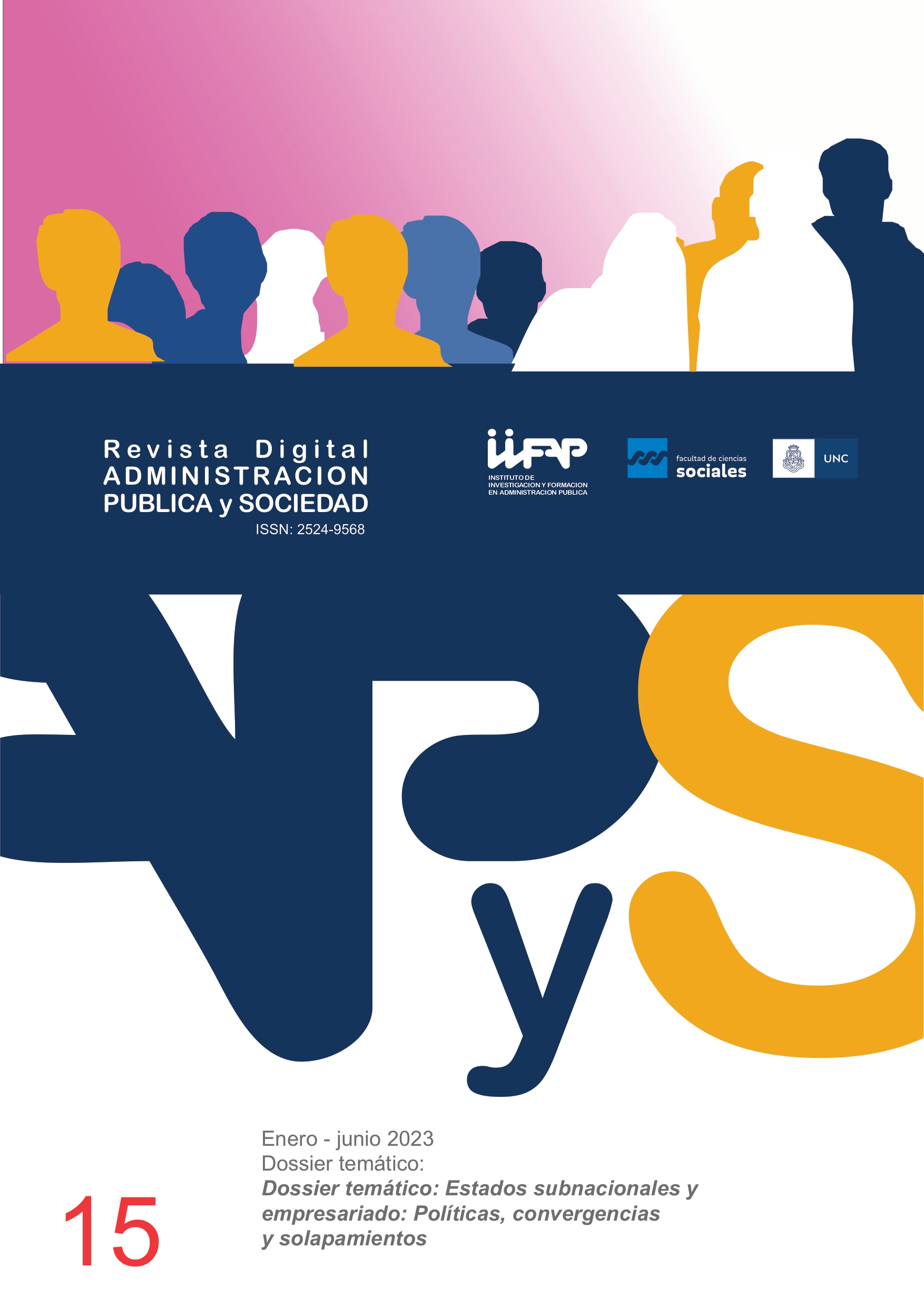Ethical data governance in the Public Administration: Comments from the UPAD case in Costa Rica
Main Article Content
Abstract
This article reflects on the creation of the Presidential Data Analysis Unit (UPAD) in Costa Rica and its impact on the privacy and autonomy of citizens. For this purpose, the case study methodology is used, which consists of a contextualized analysis of the political, social and technological environment in Costa Rica, which helps to understand the reasons that led to the creation of UPAD, as well as the factors that contributed to the privacy issues. Likewise, the ethical and technological challenges posed by the massive use of data in the Public Administration are explored, such as privacy, security and equity, as well as the importance of choosing the appropriate technology to guarantee ethical data management. The article concludes with a series of proposals that include the promotion of transparency, the inclusion of consultation mechanisms, citizen feedback and the formation of interdisciplinary teams in order to prevent errors and improve the potential of data analysis technology in the public administration.
Downloads
Article Details

This work is licensed under a Creative Commons Attribution-NonCommercial-ShareAlike 4.0 International License.
Authors who publish in this journal accept the following terms of the copyright policy:
- Authors shall retain their copyright (including copyrights) and shall grant to the journal the right of first publication of their work, which shall simultaneously be subject to the Creative Commons Recognition License: No commercial use of the original work or any derivative works is permitted, distribution of which must be made under a license equal to that which governs the original work.
- Authors may adopt other non-exclusive license agreements for the distribution of the version of the published work (e.g., placing it in an institutional repository or publishing it in a book) provided that the initial publication in this journal is indicated.
- Authors are allowed and encouraged to disseminate their work through the Internet (e.g., in institutional repositories or on their website) after the publication process, which may lead to interesting exchanges and increased citations of the published work. (See The Effect of Open Access).
References
Ballantyne, A., & Schaefer, G. O. (2018). Consent and the ethical duty to participate in health data research. Journal of Medical Ethics, 44(6), 392–396. doi:10.1136/medethics-2017-104550
Broad, E; Smith, A; and Wells, P. (2017) Helping organisations navigate ethical concerns in their data practices. Open Data Institute.
Colmanerejo, R. (2017). Una ética para Big Data. Editorial UOC. Barcelona
Colmanerejo, R. (2018). Ética aplicada a la gestión de datos masivos Anales de la Cátedra Francisco Suárez. Núm. 52 (2018), 113-129
Colmenarejo Fernández, R. (2018). Ética aplicada a la gestión de datos masivos. Anales de la Cátedra Francisco Suárez 52, pp. 113-129.
Congressional Research Service (CRS) (2021) Biometric Technologies and Global Security
Crhoy.com (Feb 28, 2021). Estas son algunas de las bases de datos que utilizó la UPAD | Crhoy.com. (2021). Retrieved 29 November 2021, from https://www.crhoy.com/nacionales/estas-son-algunas-de-las-bases-de-datos-que-utilizo-la-upad/.
Crhoy.com (Feb, 2021) Alvarado crea oficina para obtener datos confidenciales de los ticos | Crhoy.com. (2021). Retrieved 28 November 2021, from https://www.crhoy.com/nacionales/alvarado-crea-oficina-para-obtener-datos-confidenciales-de-los-ticos/.
Crhoy.com. (Jun 1, 2020). Audio “perdido” revelaba que gobierno usaba datos con nombres, apellidos y hasta direcciones… | Crhoy.com. (2021). Retrieved 29 November 2021, from https://www.crhoy.com/nacionales/caso-upad-audio-perdido-revelaba-que-gobierno-usaba-datos-con-nombres-apellidos-y-hasta-direcciones/.
Drew C. 2016 Data science ethics in government. Phil.Trans.R.Soc.A 374: 20160119.
El Universo (2019). Datos de licencias de conducir son usados para deportar a migrantes en Estados Unidos. https://www.eluniverso.com/noticias/2019/07/08/nota/7415646/autorizacion-datos-licencias-conducir-seran-usados-deportar/
Floridi L, Taddeo M. (2016 What is data ethics? Phil.Trans.R.Soc.A 374: 20160360.
Fox, J. (2007). The uncertain relationship between transparency and accountability. Development in Practice, 17(4-5), 663–671. doi:10.1080/09614520701469955
García Vázquez, M. (2014), Estrategia y Mercadotecnia de IBM Software. Editorial IBM Impact, Nueva York, 2014. Pág.2
Harwell, D. (2021). ICE investigators used a private utility database covering millions to pursue immigration violations. The Washington Post. https://www.washingtonpost.com/technology/2021/02/26/ice-private-utility-data/
http://dx.doi.org/10.1098/rsta.2016.0119
Jauregi, L, (2021). Big Data: la revolución de los datos masivos en la Administración Pública. 71. 73-94. 10.18543/inguruak-71-2021-art05.
Kaye J, Whitley EA, Lund D, et al. Dynamic consent: a patient interface for twenty-first century research networks. Eur J Hum Genet 2015;23(2):141–6.
Piedra, J. (2021) La Smartificación de la Administración Pública: apostillas críticas a partir del caso europeo. Cuadernos Salmantinos de Filosofía (Sección Monográfica: Filosofía e Inteligencia Artificial) Vol. 48, 2021, 235-250, ISSN: 0210-4857E-ISSN: 2660-9509 pp.235-250 DOI:10.36576/summa.144500
Piedra, J. (2022). Decolonizando la Ética de la IA. DILEMATA: Revista Internacional de Éticas Aplicadas. Nº 38, mayo.
Ploug T, Holm S. Meta Consent - a flexible solution to the problem of secondary use of health data. Bioethics 2016;30(9):721–32.
PressReader.com - Digital Newspaper & Magazine Subscriptions. (2021). Retrieved 29 November 2021, from https://www.pressreader.com/costa-rica/la-nacion-costa-rica/20200731/281599537833485.
Ramió, C. (2019) Inteligencia Artificial y Administración Pública. Robots y Humanos compartiendo el servicio público. Madrid: Los libros de la Catarata.
Sedenberg, E., & Hoffmann, A.L. (2016). Recovering the History of Informed Consent for Data Science and Internet Industry Research Ethics. PRN: Political Processes.
Teletica. (2020) Decreto UPAD no fue revisado por departamento de Leyes y Decretos |). Retrieved 4 November 2022, from https://www.teletica.com/politica/decreto-upad-no-fue-revisado-por-departamento-de-leyes-y-decretos_269070
Véliz, C. (2020) Privacidad es poder. Datos, vigilancia y libertad en la era digital. Debate. España
Yarina, M & Amoroso Fernández, Yarina. (2018). La Administración Pública en la encrucijada del Big Data.

